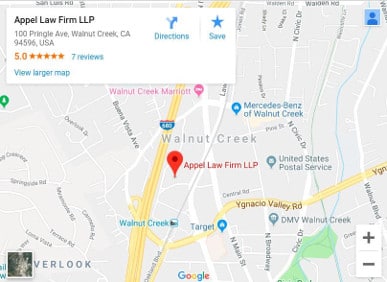Main Takeaways
- After an injured worker reaches their MMI, settlement negotiations can begin.
- When an employee sustains an injury(ies) on the job that leads to a Permanent Partial or a Permanent Total Disability, they will receive periodic payments from the WC insurance to supplement a portion of their lost wages.
- A worker can receive either a lump sum settlement or periodic payments every 2 weeks.
- With an annuity, the settlement amount is invested. Once invested, it produces a steady stream of income for the worker.
The workers’ compensation (WC) system in California includes a variety of payment types. The payment types an injured employee receives as they move through the CA workers’ compensation system depends on the extent of their injury(ies). Once the injured worker reaches Maximum Medical Improvement (MMI), settlement negotiations can begin.
California’s WC: Periodic Payments Received Prior to a Negotiated Settlement
Acronyms for Periodic Payment Types for Employees in California with a Temporary Disability:
- TD – Temporary Disability
- TPD – Temporary Partial Disability
- TTD – Temporary Total Disability
Acronyms for Periodic Payment Types for California Employees with a Permanent Disability:
- PD – Permanent Disability
- PDA – Permanent Disability Advance (a single payment)
- PPD – Permanent Partial Disability
- PTD – Permanent Total Disability
A Permanent Disability Advance (PDA)
When an employee sustains an injury(ies) on the job that leads to a Permanent Partial or a Permanent Total Disability, they will receive periodic payments from the WC insurance to supplement a portion of their lost wages. However, the payments received by an injured worker are only equal to two-thirds of their gross wages (pre-tax): Therefore, if the injured employee is experiencing hardship, they may request an ‘advance’ against a future Workers’ Compensation settlement amount.
When a PDA is requested, and granted, it is paid to the injured employee as a small Lump Sum (LS). In most cases, once a settlement is reached between the injured employee and WC, this Permanent Disability Advance is subtracted from the final settlement amount.
Settlement Options in California Workers’ Compensation Cases: A Stipulated Award vs Compromise and Release
A Stipulated Award (STIPS):
A stipulated award does not give the injured worker a lump sum as a final settlement; instead, an agreement is reached for periodic permanent disability benefits (paid every two weeks). This agreement between the workers’ compensation insurance and the employee will specify the maximum amount that will be paid.
This type of settlement allows the injured worker to:
- reopen his/her workers’ comp case in California; or
- follow with another stipulated award; or
- request a compromise and release at a later date.
It is important to note that due to previous permanent disability payments that they are owed, a worker may still receive a lump sum with a STIPS.
California Workers’ Compensation Compromise and Release:
Unlike a STIPS agreement, if a compromise and release (C&R) settlement is reached, the worker receives a final lump sum settlement. However, in order to receive this lump sum, the employee gives up several rights.
With a lump sum settlement, the employee agrees to:
- the inability to reopen the WC claim again at a later date;
- no future medical care for the injury(ies) sustained; as well as
- no additional PD or TD benefits (vocational rehabilitation benefits may be settled individually).
If a PDA was previously granted, that amount is typically subtracted from this final lump sum. Since workers’ compensation cases are taken on a contingency basis, the amount of the settlement attained also specifies the fee expense amount the workers’ compensation attorney receives. A C&R settlement in California may include an annuity or it may be paid through a structured settlement.
The Difference Between an Annuity and a Structured Settlement
With an annuity, the settlement amount is invested. Once invested, it produces a steady stream of income for the worker. These annuity payments may continue for a specific length of time or for the rest of the injured worker’s life.
If a structured settlement is reached, instead of being given a lump sum, the worker agrees to receive a part of the settlement or the entire settlement amount through periodic payments. As part of this settlement, an agreed upon schedule for delivery of these payments is also reached.
In addition to the monetary settlement amount to the employee, the California workers’ comp insurance company typically agrees to cover (in whole or in part) any payments the employee received from a state public disability benefit (PDB) program.
While the majority of California’s WC cases settle without going to trial, if a settlement cannot be reached, the case may go to trial. Workers’ compensation trials are heard before a Workers’ Compensation Appeals Board (WCAB) judge. Once the judge makes a decision, that decision is referred to as ‘Findings and Award.’
The Benefits of Hiring an Experienced WC Attorney in California
Choosing to pursue your California workers’ comp claim on your own or deciding to proceed with an experienced attorney may determine whether you qualify for benefits under workers’ compensation insurance or not. While the law does not offer any guarantees, your chances of a WC claim approval increase when you work with experienced workers’ compensation attorneys. We know how the system works; therefore, we can help you navigate through the various stages of your California workers’ compensation case.
If you have sustained injuries while working, contact the Appel Law Firm today at 925-938-2000 and schedule your complimentary consultation. The Appel Law Firm LLP, is located at 100 Pringle Avenue, Suite 730, in Walnut Creek, California.
Our Walnut Creek workers compensation attorneys are also experienced in helping injured workers in Concord, Pleasant Hill, and all throughout the Bay Area

Speak Your Mind